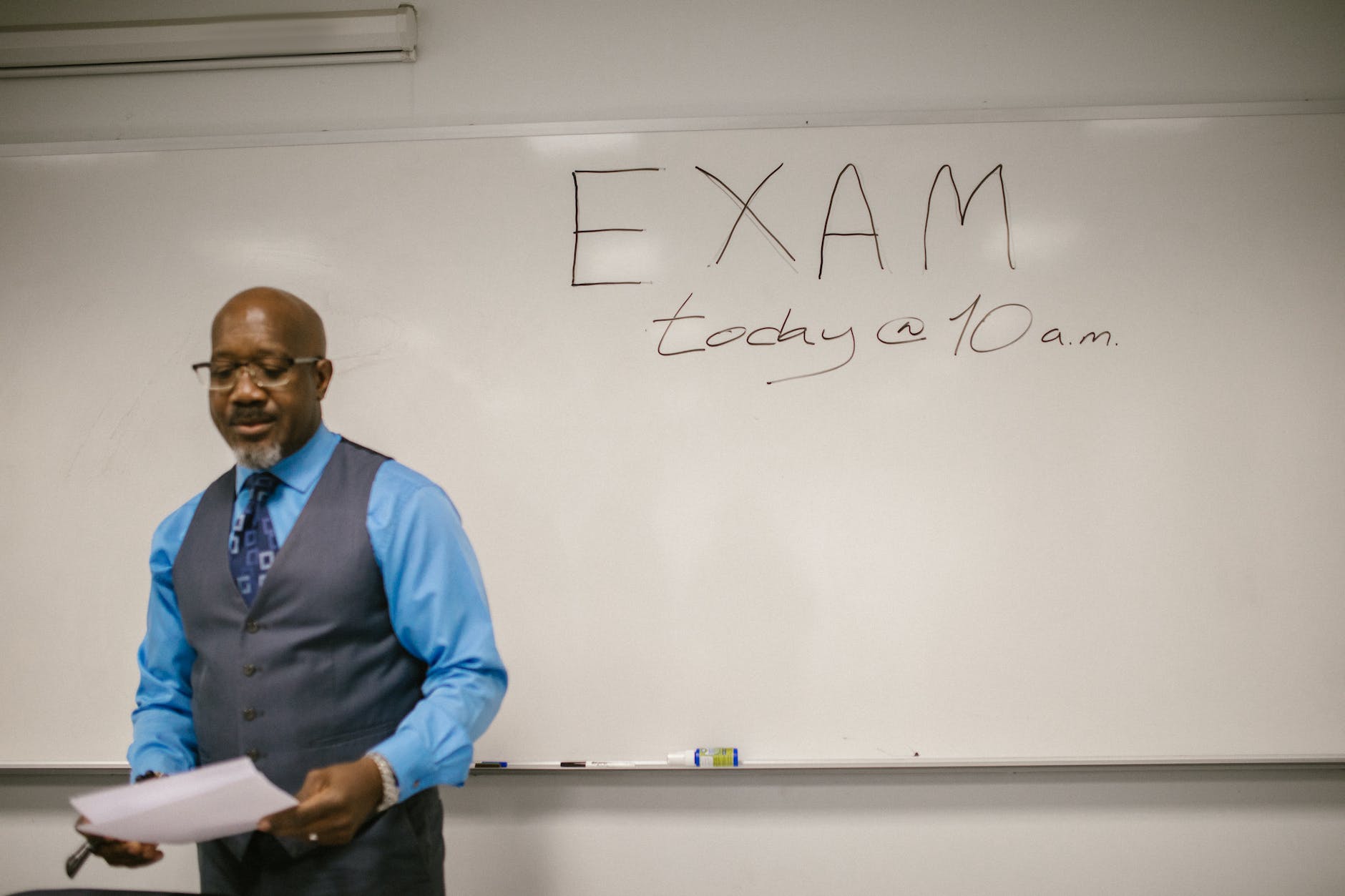
Introduction to TESOL and Its Certification
Delve into the intricate web of certification requirements for TESOL, which vary widely across institutions and geographies. This detailed exploration covers the spectrum of prerequisites, from academic qualifications to practical teaching experience. It outlines the diversity in course duration, curriculum content, and assessment criteria, offering a comparative analysis of various renowned TESOL programs worldwide. Insightful anecdotes from certified TESOL teachers provide a first-hand view of the certification journey, including challenges faced and strategies for success. The section also addresses the evolving nature of these requirements in response to global educational trends and the increasing demand for skilled ESL educators.
Market Demand for TESOL Certified Teachers
This comprehensive analysis examines the burgeoning global demand for TESOL certified teachers. It offers statistical data and trend analysis, highlighting regions with the highest demand and exploring factors driving this need, such as globalization, immigration patterns, and the increasing importance of English as a lingua franca. Interviews with school administrators and language institute directors provide an insider’s perspective on hiring trends, while success stories of TESOL educators illuminate the career trajectories and opportunities that await certified professionals. This section also forecasts future trends in the ESL teaching market, considering socio-economic shifts and technological advancements in education.
Career Prospects and Opportunities
Journey through the myriad career pathways unlocked by a TESOL certificate in the dynamic ESL field. This section paints a vivid picture of potential roles, from traditional classroom teaching to innovative online tutoring, and from curriculum development to administrative roles in educational institutions. It also explores the growing trend of TESOL professionals engaging in consultancy and teacher training roles, reflecting the expanding scope of this field. Personal narratives from TESOL-certified professionals showcase the real-world impact of this certification on career advancement, international mobility, and personal growth. The section also delves into the nuances of freelance versus full-time roles, and the emerging opportunities in digital education platforms.
TESOL in the Digital Era
Embrace the digital transformation in TESOL education. This new section discusses the integration of technology in TESOL, such as online teaching platforms, digital resources, and virtual classrooms. It examines how these technological advancements have reshaped teaching methodologies, student engagement, and assessment techniques in ESL education. The section also highlights the challenges and opportunities presented by this digital shift, including accessibility issues, the digital divide, and the potential for personalized learning experiences. It features case studies of successful online TESOL programs and interviews with pioneers in digital ESL education, offering insights into the future of TESOL in an increasingly digital world.
Global Impact of TESOL
This section delves into the broader impact of TESOL on global education and cultural exchange. It discusses how TESOL-certified teachers contribute to bridging language barriers and fostering mutual understanding among diverse cultures. The narrative includes case studies of TESOL initiatives in various countries, showcasing their role in promoting English literacy and educational equity. It also touches on the role of TESOL in humanitarian efforts, such as working with refugees and migrants, emphasizing the social responsibility aspect of the profession. Interviews with TESOL teachers involved in international projects illustrate the profound personal and societal impacts of their work.
Challenges and Rewards of a TESOL Career
Explore the multifaceted nature of a TESOL career, balancing its challenges against its rewards. This section provides an honest appraisal of the difficulties faced by TESOL educators, such as adapting to different cultural contexts, managing diverse classrooms, and keeping up with pedagogical advancements. It contrasts these with the immense rewards of the profession, including the joy of impacting lives, the excitement of cultural immersion, and the satisfaction of professional growth. Personal stories from TESOL teachers about overcoming obstacles and celebrating achievements offer a realistic and inspiring view of what to expect in this field.

Teaching
Advancements in TESOL Methodologies
Investigate the latest advancements in TESOL methodologies. This part of the document highlights innovative teaching strategies and approaches that have emerged in recent years. It discusses the shift towards more learner-centered pedagogies, the integration of technology in language teaching, and the adoption of inclusive practices catering to diverse learning needs. This section also explores how research in linguistics and psychology has influenced TESOL, with insights from experts in these fields. Case studies of schools and institutions that have successfully implemented these modern methodologies provide practical examples of their application.
Preparing for a TESOL Certification
This section serves as a comprehensive guide for aspiring TESOL educators on preparing for certification. It outlines the academic groundwork needed, including recommended courses and study materials. Practical advice on gaining teaching experience, such as volunteering or internships, is provided. The section also includes tips on selecting the right certification program, considering factors like accreditation, course content, and teaching practicum opportunities. Testimonials from recent TESOL graduates offer insights into effective preparation strategies and common pitfalls to avoid.
Networking and Professional Development in TESOL
Emphasize the importance of networking and continuous professional development in the TESOL field. This section covers the various professional associations, conferences, and workshops available to TESOL educators. It discusses the benefits of networking, such as sharing best practices, staying updated on industry trends, and finding job opportunities. The role of professional development in career advancement, including pursuing advanced degrees or specialized certifications, is also highlighted. Real-life examples of how networking and professional growth have positively impacted TESOL educators’ careers are included to inspire readers.
TESOL and Cultural Sensitivity
This section addresses the critical aspect of cultural sensitivity in TESOL. It explores how TESOL educators can navigate and respect the diverse cultural backgrounds of their students. This includes understanding different learning styles influenced by cultural norms, addressing language barriers sensitively, and incorporating multicultural content in the curriculum. The section will provide strategies for creating an inclusive classroom environment that celebrates diversity and fosters mutual respect. Real-world scenarios where TESOL teachers successfully navigated cultural challenges will be highlighted to offer practical insights.
The Future of TESOL
Venture into the future landscape of TESOL, a field in constant flux due to evolving global trends and educational technologies. This section prognosticates the future directions of TESOL, considering factors such as demographic shifts, technological advancements, and the changing needs of ESL learners. It discusses potential changes in curriculum design, teaching methodologies, and the global job market for TESOL professionals. The section will also touch upon the growing importance of online and blended learning models and how these might shape the role of TESOL educators in the future.
Teaching Materials and Resources in TESOL
Dive into the vast array of teaching materials and resources available to TESOL educators. This part of the document will cover traditional and digital resources, including textbooks, multimedia content, and online platforms. It will provide guidance on selecting appropriate materials for different age groups and proficiency levels, and how to adapt them for various teaching contexts. This section will also include tips for creating custom teaching materials and leveraging technology to enhance language learning experiences.
Personal Growth and TESOL
This section delves into the personal growth opportunities afforded by a career in TESOL. It discusses how teaching a diverse student population can broaden one’s cultural horizons and foster empathy. The challenges and triumphs of TESOL can also contribute to personal resilience and adaptability. This section will feature stories from TESOL professionals who have experienced significant personal development, highlighting how their journey in TESOL has shaped their worldview and interpersonal skills.
TESOL Certification Success Stories
Conclude with inspirational success stories from individuals who have achieved their career goals through TESOL certification. This section will showcase a range of narratives, from teachers who have traveled the world to those who have made impactful contributions in their local communities. It will highlight the diverse paths and opportunities that TESOL certification can open, aiming to motivate and encourage prospective TESOL candidates.
TESOL in Different Educational Settings
This section explores the application of TESOL in various educational settings, including public schools, private language institutes, universities, and online platforms. It discusses the unique challenges and opportunities presented in each setting, such as class size, resource availability, and student demographics. The section will provide tips for adapting teaching strategies to suit different environments and will feature interviews with TESOL educators who have experience in diverse educational contexts.
Impact of Globalization on TESOL
Delve into how globalization has impacted the field of TESOL. This section examines the increasing demand for English language proficiency worldwide and how this has shaped TESOL methodologies and the ESL job market. It will explore the role of English as an international lingua franca and how this affects cultural dynamics in the classroom. The section will also discuss the implications of global mobility for TESOL professionals, including opportunities and challenges in teaching English in various parts of the world.
TESOL and Language Acquisition Theories
This section offers an in-depth look at various language acquisition theories and their relevance to TESOL. It will dissect theories such as behaviorism, constructivism, and the communicative approach, and discuss how these theories inform TESOL teaching practices. The section will include case studies of how specific theories have been applied in classroom settings and their effectiveness in different learning contexts. It will also address recent developments in understanding language acquisition and how these are shaping contemporary TESOL methodologies.
TESOL for Special Needs Students
Address the specialized area of teaching English to learners with special needs. This section will cover strategies for adapting TESOL methodologies to accommodate students with learning disabilities, sensory impairments, and other challenges. It will discuss the importance of inclusive education and how TESOL can be tailored to be accessible and effective for all learners. The section will include case studies and expert opinions on best practices in this area.
Ethical Considerations in TESOL
Explore the ethical dimensions of teaching English as a second language. This section will address issues such as cultural sensitivity, ethical teaching practices, and the responsibilities of TESOL educators in a global context. It will discuss how to navigate ethical dilemmas that may arise in the classroom and provide guidelines for maintaining professional integrity and respect for diverse cultural backgrounds.

Teaching
TESOL and Lifelong Learning
This section emphasizes the concept of lifelong learning within the TESOL profession. It explores how TESOL educators continuously evolve their skills and knowledge through ongoing education, professional development, and reflective teaching practices. It will feature stories from TESOL professionals who have embraced lifelong learning, showing how this approach has enriched their teaching and personal growth.
Integrating Technology in TESOL
This section will focus on the integration of technology in TESOL, a trend that has transformed modern language teaching. It will explore various technological tools and platforms, such as language learning apps, virtual classrooms, and interactive software, and how they can be utilized effectively in ESL education. The section will discuss the benefits and challenges of using technology in TESOL, including issues related to digital literacy, access to resources, and maintaining student engagement in virtual environments. It will also include examples of successful technology integration in TESOL programs.
TESOL and English for Specific Purposes (ESP)
Dive into the specialized field of English for Specific Purposes within TESOL. This section will cover how TESOL professionals can tailor their teaching to specific professional or academic fields, such as business English, medical English, or English for academic purposes. It will discuss the methodologies, curriculum design, and materials development for ESP, and how these differ from general English teaching. The section will include case studies of successful ESP programs and interviews with TESOL educators who specialize in this area.
Building a Supportive TESOL Community
Highlight the importance of building a supportive community among TESOL professionals. This section will discuss the benefits of collaboration and sharing experiences, resources, and best practices within the TESOL community. It will explore different platforms and forums where TESOL educators can connect, such as professional organizations, online communities, and conferences. The section will also include advice on how to actively engage in these communities for professional growth and support.
TESOL and Bilingual Education
Examine the role of TESOL in bilingual education settings. This section will discuss how TESOL methodologies can be adapted for bilingual or multilingual learners, and the benefits and challenges of teaching in bilingual contexts. It will cover strategies for promoting language development in both English and the students’ native languages and discuss the importance of cultural competence in bilingual education. The section will include insights from teachers who work in bilingual schools and programs.
Assessment and Evaluation in TESOL
Expand on the critical role of assessment and evaluation in TESOL. This section will delve into various assessment methods used in ESL education, including formative and summative assessments, standardized tests, and alternative assessment strategies. It will discuss the principles of effective assessment design and how to align assessments with learning objectives. The section will also explore the challenges of assessing language proficiency and provide case studies of innovative assessment practices in TESOL.
TESOL for Young Learners
Focus on the specific needs and approaches for teaching English to young learners in TESOL. This section will cover age-appropriate teaching methodologies, classroom management strategies, and material development for children and adolescents. It will discuss the psychological and developmental aspects of teaching young learners and how these impact language acquisition. The section will include examples of successful TESOL programs for young learners and tips from experienced educators in this field.






